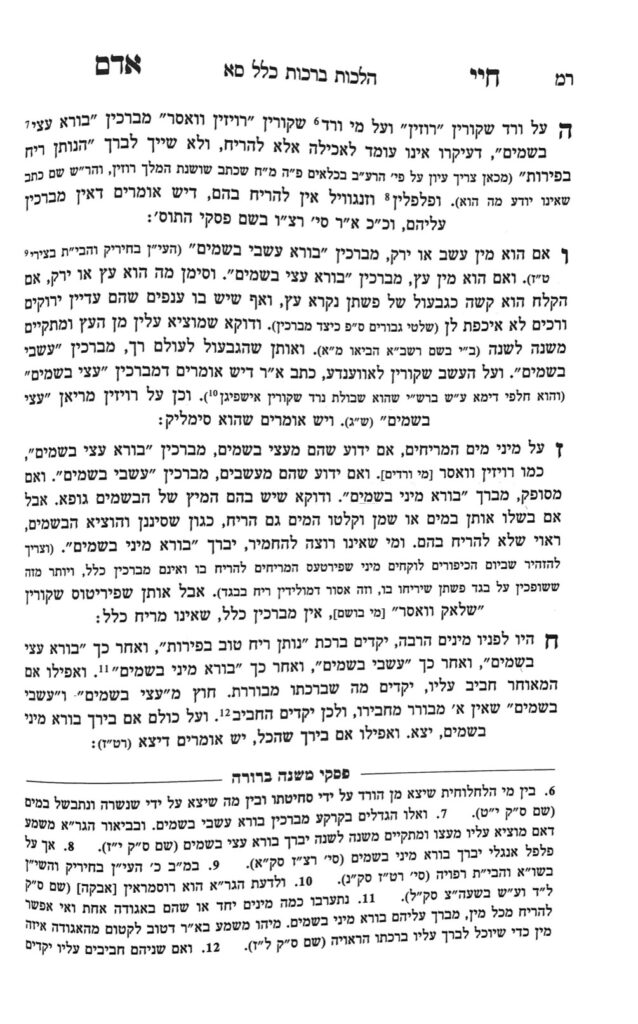We are continuing in siman 5. THe Chayei Adam writes that one should avoid smelling peppercorns (which are a tree berry) and ginger. These items are generally not used for their smell, but for their taste. Therefore, some poskim hold they do not receive a bracha, and others hold that even if the consensus is not to use them for smell, if one does decide to smell them, they receive a bracha. Therefore, the Chayei Adam writes that one should avoid the safeik by refraining from smelling these items.
In siman 6, the Chayei Adam writes that if one smells grasses or vegetables, the correct bracha is borei isvei besamim. He points out that the correct pronunciation is with a chirik under the ayin, and tzeirei under the beis. If the item grows on a tree, the correct bracha is borei atzei besamim. The indication whether an item is considered as having grown on a tree or as a grass is whether the stalk is as hard as the stalk of flax. If it is hard, it is considered a tree and the correct bracha is borei atzei besamim, and if it is not hard, it is considered a grass, and the correct bracha is borei isvei besamim.
Once part of the item has reached the stage of being considered a tree, the entire item is considered a tree, even if there are parts which are not as hard.
The Chayei Adam adds that in order to be considered as having grown from a tree, the stalks must originate from a trunk (as opposed to directly from the ground), and the stalk must remain hard throughout the entire year. We will discuss this further tomorrow, be’ezras Hashem.
Summary
- One should avoid smelling peppercorns or ginger.
- Borei isvei besamim is the bracha for items which grow as grasses.
- Borei atzei besamim is the bracha for items which grow on trees or tree-like plants.
- The indication of whether an item is isvei or atzei is whether its stalk is as hard as a flax stalk



